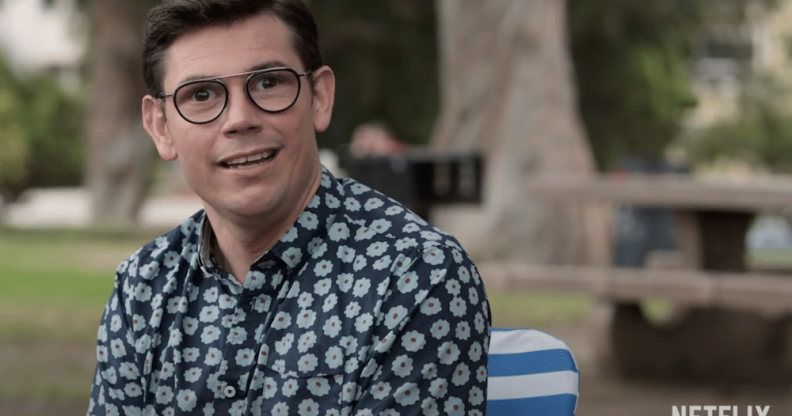Special creator Ryan O’Connell wants show to be ‘known for topping, bottoming, top anxiety and lube’

Ryan O’Connell stars in and created the acclaimed Netflix comedy Special. (YouTube/ Netflix)
Ryan O’Connell, who stars in and created the acclaimed Netflix comedy Special, wants the show’s legacy to be “lube and disabled awareness”.
On Thursday (20 May), the second and final season of Special will hit Netflix, and will include a whole lot of inclusive gay sex.
Speaking with HuffPost, O’Connell said: “I want gay sex and Special to be synonymous.
“I want my show to be known for topping, bottoming, top anxiety, lube – all those things.
“I want to take the mystery and shame out of gay sex by depicting it as I’ve experienced it: erotic, humiliating, empowering, funny and intense, all within the same thrust.”
He added: “Hopefully, I’ve removed some stigma and made non-disabled viewers feel less skittish and uncomfortable around disability, too.
“That’s what I hope to do: lube and disabled awareness.”
The show’s second season, which is based on O’Connell’s own lived experience as a disabled gay man, will follow his character Ryan enjoying his independence having moved away from his mother and embarking on a complicated romance with dance instructor Tanner (Max Jenkins).
The season, which has been a long time coming after production was delayed during the coronavirus pandemic, will be bittersweet for fans.
Although fans will be treated to longer episodes – half an hour instead of 15 minutes – Netflix confirmed that the second series will be Special’s last.
Describing the moment in December, 2019, when he found out the show had been cancelled, O’Connell said: “Netflix renewed and canceled us in the same phone call, which was definitely a roller coaster.
“However, I’m grateful they told me in advance because it would have felt like creative blue balls if I’d made this season hoping for season three.
“It allowed me to really, really think, because I want the audience to feel good about where we leave these characters.”
He added: “I hope that people see it as a sort of balm for these times, and it brings them happiness while progressing their own thinking with regard to disability, queerness, whatever. We need that now more than ever.”

